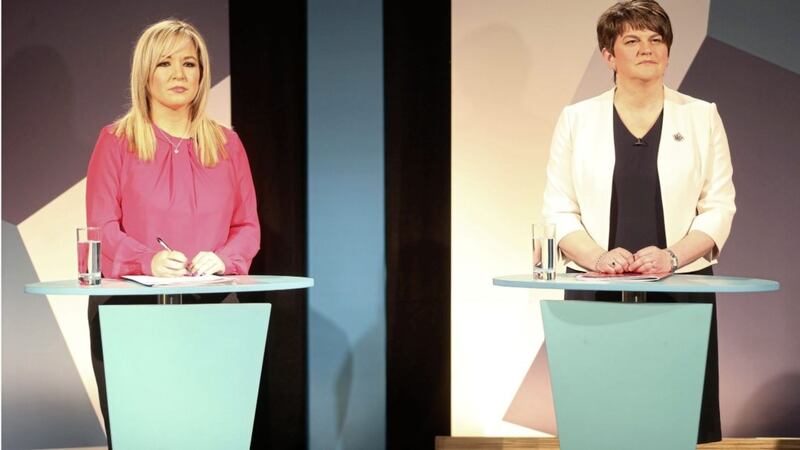One of the joys of what I do (apart from the fact that my children think that all I actually do is sit at home, drink tea, eat ginger snaps and watch continuous loop Frasier while pretending to write) is that I’m paid to be rude.
I have the luxury of assorted columns and radio/television commentary to say what I really think of politics and politicians: the luxury—albeit with a few legal caveats—to make it very, very clear what I think. Sometimes I get it wrong. Sometimes I get it bang on the money. One week you’ll want to drop me from the nearest rooftop and the following week you’ll want to buy me a pint. Plain speaking goes with the territory of what I do. Try tempting me with a word association exercise and you’ll get some very rude words in return.
So you’ll understand it when I say that I don’t get terribly excited about what politicians say about each other—either in private, or in public. And, let’s be honest, the public themselves are very indiscreet and non-PC when they’re discussing politics. I’ve sat round many a dinner and bar table and heard views about politicians expressed in language that would make a Tourette’s Syndrome sufferer blush. I’ve been stopped by people in shops, streets and pubs, who tell me exactly—and I do mean exactly and wonderfully graphically—what they think of political figures on both sides of the fence.
On one memorable occasion it came closer to home when I was stopped in a supermarket by a very irate man: “Why do you write all that crap in the Irish News? Why can’t you ever say anything nice about anyone? Why do you always think you’re so much better than everyone else? You’re not. You’re just crap. Why can’t you be like that guy Alex Kane?” On explaining to him that I was Alex Kane he looked at me for about ten seconds: “So you are. You baldies all look alike. But you’re the one with the funny eye. Sorry mate, I like you. But if you see Brian Feeney tell him I think he’s crap.” I took great pleasure in telling Brian when I next saw him. He loved the story.
Anyway, at what point does the rough-and-tumble language of everyday politics go over the edge and into offence? Politics is a brutal game: it always has been. I think social media—particularly Twitter and Facebook—has made it even more brutal. There need to be boundaries, of course there do. Lying about someone. Mocking a disability. Bullying. Trolling. Using computer technology to fake an event or story. Comment about the family. All of that crosses the line and should be stopped.
That said, I think it is nonsense to believe that we should expect politicians to be unnaturally polite about each other. And I would be concerned about creating an environment in which they would be afraid to speak without running their comments past a press officer or ‘respect’ monitor. They can’t be expected to like each other: most of their voters don’t. I’d rather have honesty—albeit within clearly defined boundaries—than tongue-biting hypocrisy. I’d rather hear what the politician really thinks, than their sanitised-for-the-media version. Gerry Adams thinks some unionists are ‘bastards’: at least we know the truth. Foster describes Sinn Féin as ‘crocodiles’: at least we know the truth. Gordon Brown complains about a ‘bigoted woman’: at least we know the truth. Arlene Foster says she thinks ‘blonde’ when she thinks of Michelle O’Neill: at least we know the truth. In his resignation letter in January Martin McGuinness accuses the DUP of ‘crude and crass bigotry’: at least we know the truth.
Why be afraid of the truth? Isn’t it better that we know what politicians think of each other rather than imagine that they inhabit a bubble in which respect and personal tolerance are part of their everyday lives and interaction? Personally, I’d rather judge them by the truth than by what they want us to think of as the truth. I know what my friends think about politicians. I know what members of the public and members of political parties think about politicians. I know what many pundits think about them—and, of course, it colours our work. I have no difficulty whatsoever in knowing what politicians think of each other. Should we really expect standards from them that we don’t and wouldn’t impose upon ourselves?
I was guest speaker at a Sinn Féin conference in Dublin a few months ago, shortly before it was confirmed that Michelle O’Neill would be replacing Martin McGuinness. At the end of her speech a member of the audience asked me what I thought and I joked that she needed to, “slow down a little when she’s talking.” He laughed: “You could be right. But at least she’s easy on the eye.” I couldn’t possibly comment.








